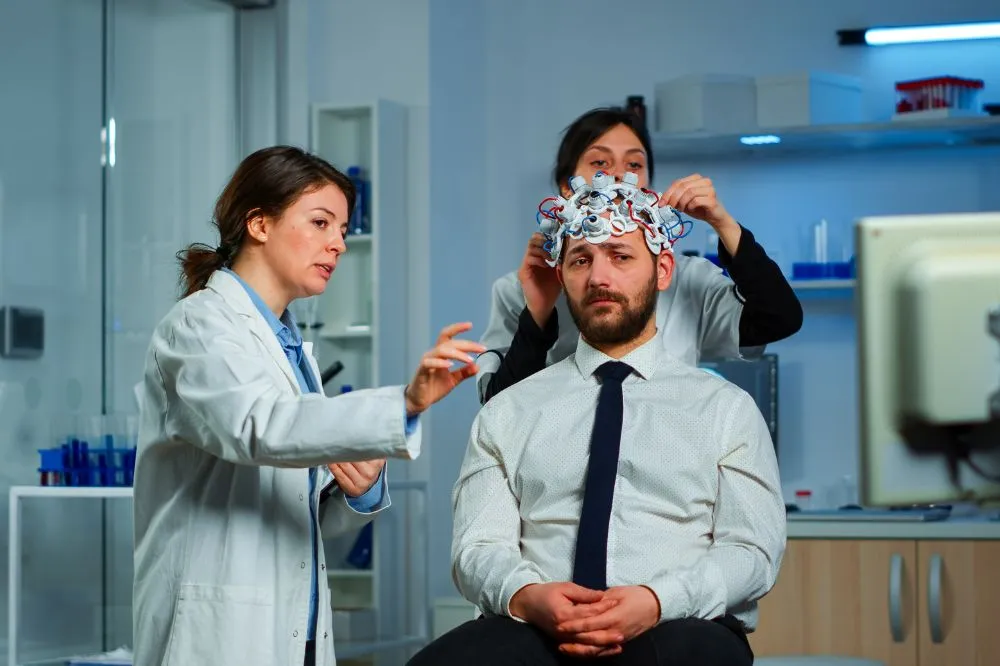Summary: Understanding mental health disorder risk and pathogenesis is complex. New studies show that adverse childhood experiences may also increase the risk of mental health disorders, as they can result in altered stress responses. In the new study, researchers focused on microglial cells in the brain rather than focusing on neurons. Since microglial cells play a vital role in brain development, researchers found that adverse childhood conditions cause increased pruning of neuronal synapses by microglial cells, thus altering stress responses. This ultimately increases the risk of mental health disorders in adults.
Most people imagine the brain as an organ that contains neurons that are interconnected in a particular way, which creates a most powerful supercomputer. Whereas cognitive function depends on how these neurons are connected via synapses, thus forming specific kinds of circuits, memories, and functional units.
Although, this is absolutely true. However, it is worth noting that the brain has non-neuronal cells that play a vital role in brain development and maintaining cognition throughout life. Therefore, dysfunction of these non-neuronal cells may increase the risk of various brain disorders, neurodegenerative diseases, and even mental health disorders.
These non-neuronal cells do not produce impulses. However, they support neurons, provide them with vital nutrients, and defend neurons from toxins, infection, and so on. They play a vital role in maintaining brain structure. These cells are glial cells. Depending on the species, they form 35-60% of all brain cells.
Among the glial cells, microglia are most abundant in the brain. They play a vital role in brain development and are also an important part of the brain’s immune system.
Researchers have been paying significant attention to microglia, their role in neurodegeneration, and mental health disorders in recent years. Since many changes in the brain are difficult to explain by focusing solely on neurons. Moreover, the role of one of the most abundant brain cells cannot be neglected in brain disorders and mental health issues.
A study shows that early life adversity causes microglia dysfunction and thus altered stress responses and mental health issues in adults
Researchers at the Departments of Anatomy & Neurobiology, Pediatrics, Neurology, and Physiology & Biophysics at the UCI School of Medicine say that neuroscience has focused much on neurons, neglecting the role of microglial cells.
However, now neurobiologists realize that a lack of understanding of the role of glial cells in brain health may be the missing link. Thus, understanding these cells that do not produce impulses but play a vital role in brain development and maintenance may help understand various neurological disorders and common mental health problems.
Researchers conducted an experimental study on mice to understand how early life adversity (ELA) can influence stress responses in later life. One group of mice was kept under close to ideal conditions, with adequate light, rest time, and food. However, another group of mice was exposed to adverse condition.
Researchers found that the group that was exposed to ELA has significant changes in the brain, especially in the stress-sensitive hypothalamic corticotropin-releasing hormone-(CRH) expressing neurons. These changes occurred due to the pruning of synapses by microglial cells.
Researchers could establish that in the developing brain, microglial cells play an important role in the formation of neuronal synapses, brain development, and, thus, stress responses. Hence, ELA causes altered brain function and stress responses.
However, researchers noted that although they could identify the role of microglial cells and altered stress responses caused due to adverse conditions in early childhood and their role in mental health disorders later in life, they are still to identify underlying molecular pathways.
Researchers still need to understand what molecules are causing microglial dysfunction. Understanding this molecular mechanism is essential for finding preventive measures and even remedies such as mental disorder treatments and childhood trauma treatment.






